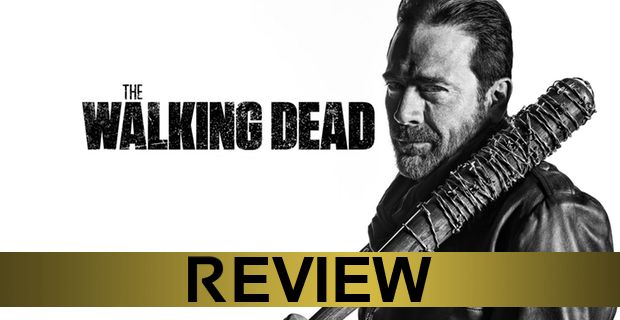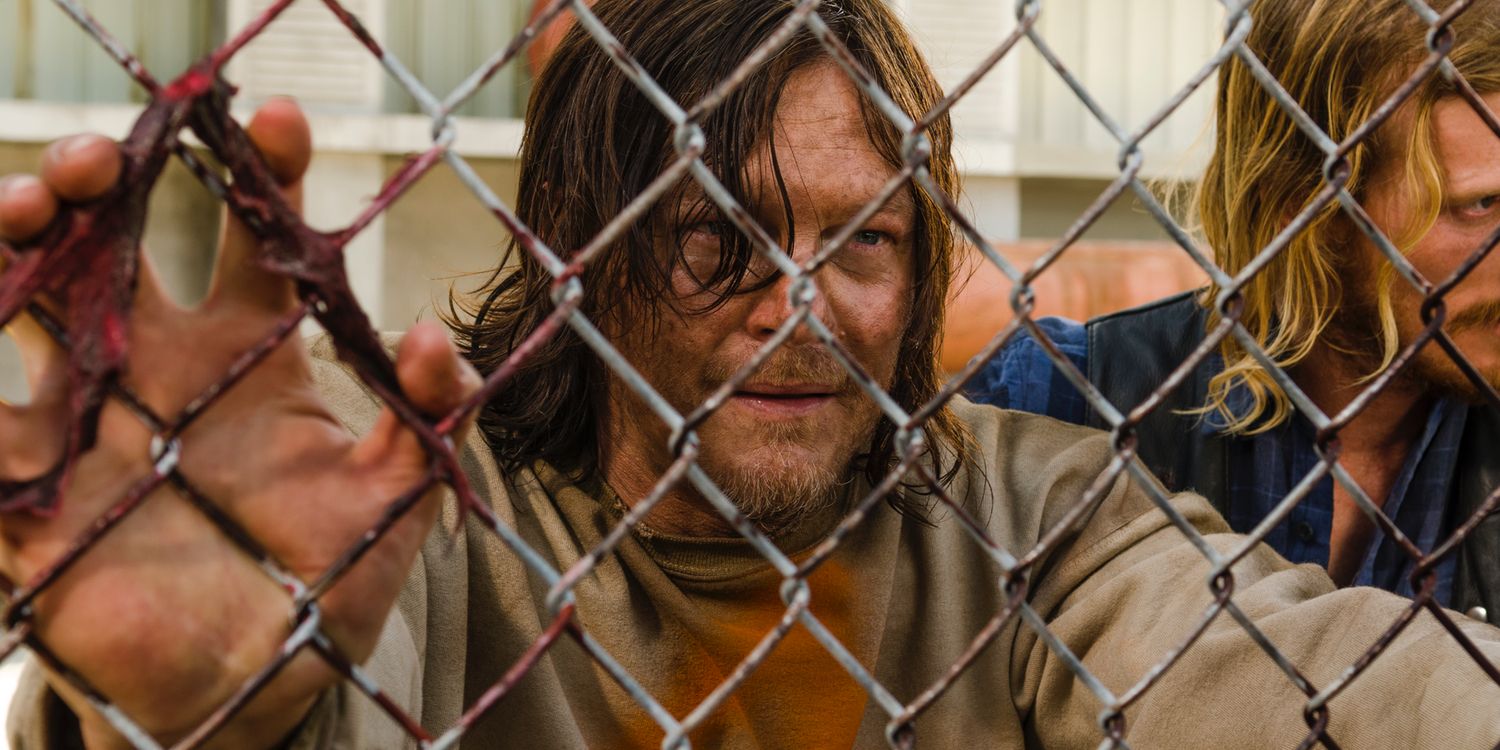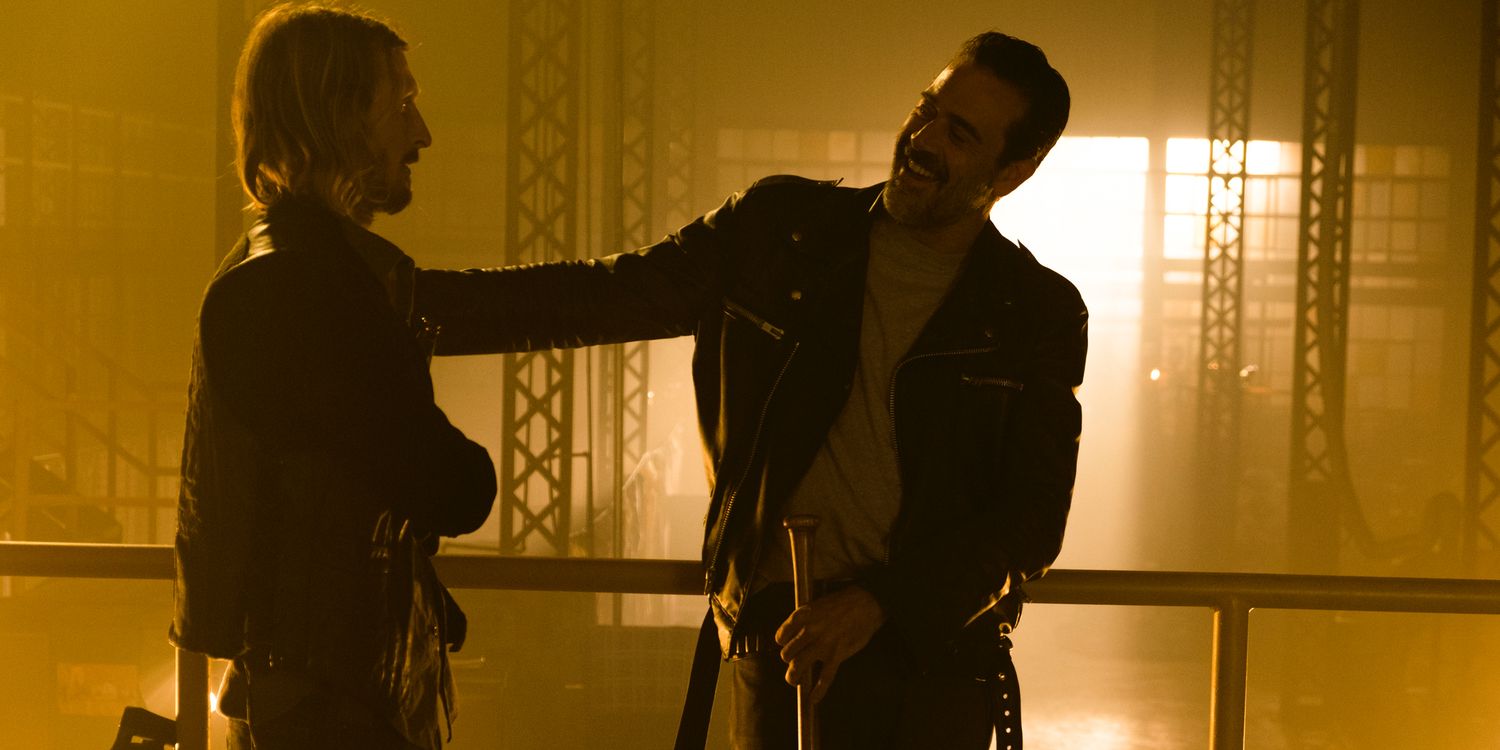During the off season of The Walking Dead, as viewers were still trying to parse the cliffhanger finale of season 6 by counting Negan's eenie, meenies or scrutinizing promotional material for coded information in search of an answer to the question "who died?" one key piece of evidence emerged. That evidence would later turn out to be a red herring of sorts, but at the time it helped stir the pot of fan speculation. It was, of course, the short video clip of the scarred Savior Dwight, wearing Daryl's leather vest while pushing his motorcycle under an overpass in an attempt to… well, as advertisements for the series became increasingly vague, who knows? Besides, the point of the clip wasn't to get the audience interested in the continuing adventures of Negan's disfigured supplicant, but to fan the flames of speculation that Daryl was on the receiving end of the mighty swing that brought season 6 to a close.
The clip worked, inasmuch as it encouraged more assumptions among the show's core fan base. It also worked to demonstrate just how much The Walking Dead, as a series, has come to rely on misleading that fan base in an effort to entertain them. For proof, look no further than the season 7 opener, an episode that, as marketed, provided the answer every fan sought, but still saw fit to jerk them around for 20 minutes before doing so.
On the plus side, the eventual reveal of Negan's victims made the show's off-season focus on Dwight even more curious. Dwight's an interesting case. After his first run-in with Daryl in the season 6 episode 'Always Accountable,' the character seemingly developed a fascination with Rick's right-hand man. That unhealthy interest played a part in the death of Dr. Denise, and the show demonstrating again its misguided reliance on misdirection when Dwight, in an act that was retroactively corrected by the show adding the line "he'll be alright" when the screen went black, shot Daryl. After Daryl's outburst in the season 7 premiere became the catalyst for Glenn's death, and resulted in him becoming Negan's prisoner, it was almost a foregone conclusion that Dwight would somehow factor in to the character's ongoing story and the show's exploration of life after Negan.
In a sense, then, 'The Cell' has two character narratives it needs to explore: Daryl's and Dwight's. And of the two, it may very well be Dwight's that is the more compelling. At this point, Daryl is locked into a situation familiar to The Walking Dead: It's an impossible situation in which he is made to suffer and endure hardship at the hands of others. Meanwhile, Dwight is given the freedom that choice brings, which puts the episode's spotlight on him, especially when he heads away from the Saviors' compound, finally paying off that clip from earlier this summer.
'The Cell' repeatedly presents itself as an account of Daryl's choice in choosing whether or not to bend to Negan's will. But the choice is a false one, in that his tormentor will override the wrong one until Daryl makes the right choice. That scenario allows the hour to develop tension around Daryl's plight, despite there actually being none. Much of it follows the same formula The Walking Dead uses in almost every situation, wherein a sense of consequence is established, in that the character in question might lose his or her life, but here there is no such chance of that happening. And to its credit, 'The Cell' doesn't push too hard on the idea that Daryl is in any real jeopardy. Instead, the hour works its way back and forth from Daryl's suffering – the dog food sandwiches, that incessant song – to establish a better sense of Negan's seductive nature. And at this point in the series, that's far more interesting than watching a character endure an agonizing and exhausting experience.
So when 'The Cell' pivots and begins to use Daryl's education in life after Negan, as a way to underline Dwight's own experience and to begin fleshing him out as an actual character rather than a villainous archetype, the episode finds something interesting to say. And surprisingly, the episode holds its tongue more often than not, letting Negan do most of the talking so that the details of what happened to Dwight and his ex-wife Sherry unfold throughout the hour until the big bat-wielding bad guy dumps it all in a bro-tastic speech that repeatedly offers up the chance to hear Jeffrey Dean Morgan utter the phrase "super-hot wife". Credited writer Angela Kang understands the weight of Negan's words lies in his nonchalance over the power he wields and the distress he takes pleasure in making others endure.
In the end, 'The Cell' is a solid hour of The Walking Dead, not only because it answers the question of what happened to Daryl, and demonstrates his strength in not caving to Negan's demands or his temptations, but also because it actually cares enough to try and flesh out two other primary characters. Watching the show explore the depths of Negan's villainy isn't surprising, but it is surprising that his tale works to make Dwight more interesting than he was before. Even the smallest amount of humanity will inevitably look much greater in anyone standing next to Negan. And for a show that so often operates on a simple binary, offering Dwight even the smallest level of complexity makes a big difference.
-
The Walking Dead continues next Sunday with the super-sized episode 'Service' @9pm on AMC.
Photos: Gene Page/AMC



